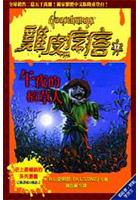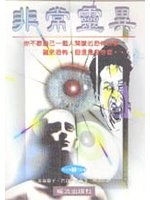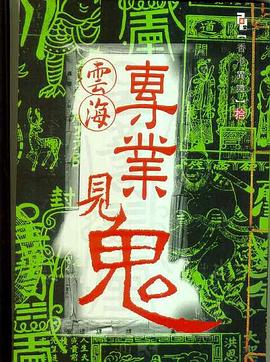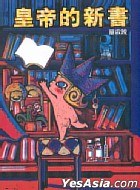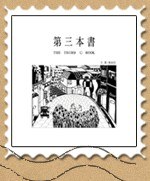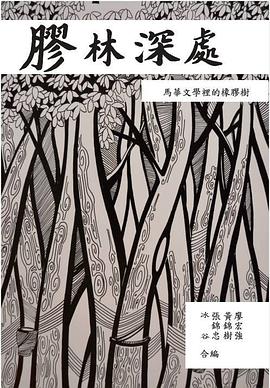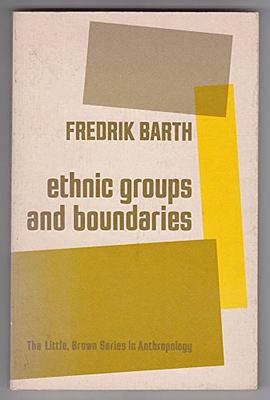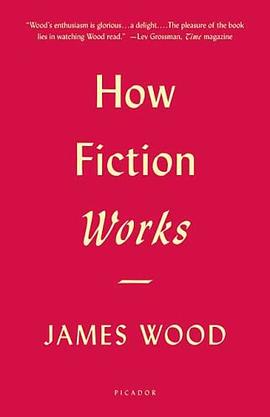

具体描述
In the tradition of E. M. Forster's "Aspects of the Novel" and Milan Kundera's "The Art of the Novel," "How Fiction Works" is a scintillating study of the magic of fiction--an analysis of its main elements and a celebration of its lasting power. Here one of the most prominent and stylish critics of our time looks into the machinery of storytelling to ask some fundamental questions: What do we mean when we say we "know" a fictional character? What constitutes a telling detail? When is a metaphor successful? Is Realism realistic? Why do some literary conventions become dated while others stay fresh?James Wood ranges widely, from Homer to "Make Way for Ducklings," from the Bible to John le Carre, and his book is both a study of the techniques of fiction-making and an alternative history of the novel. Playful and profound, "How Fiction Works" will be enlightening to writers, readers, and anyone else interested in what happens on the page.
作者简介
詹姆斯•伍德(James Wood,1965— ),英国著名文学评论家、作家,现任哈佛大学文学批评实践教授和《纽约客》专栏作家。
目录信息
读后感
If the book has a larger argument, it is that fiction is both artifice and verisimilitude, and that there is nothing difficult in holding together these two possibilities. 细节: Free indirect speech见于细节之中:认真辨别是谁在说话 Free indirect style is a...
评分1 在知乎上看到一个问题,文学批评是否有用? 有一派人认为,没什么鸟用,所有的理论不过是文论家的胡编乱造,不仅对文学没有帮助,还会妨碍阅读。 对此我当然不能同意,不过这样的看法似乎很常见,也颇为流行。一开始,我也抱着这样的偏见,对文学理论不屑一顾。为什么呢?...
评分《小说机杼》在123小节戛然而止。译者的事就算结了。但詹姆斯·伍德背后还有太多亟待挖掘。作为读者,我像黑色故事里的那种侦探,不愿停手。 英语有个诡趣,“声名远播”(famous)常故意和 “恶名昭著”(infamous)通用。詹姆斯•伍德正是一位堪称infamous的批评家。从最...
评分《琅琊榜》近来比较火,好奇之下,把书和剧都找来看了,然后有点窝火,因为浪费了好几天时间。这么低劣的东西,被捧上神坛,奉为良心之作,可见今日之中国,神不过就是地摊上卖的泥塑木雕,良心属于同样廉价的玩意儿。 那谁说了,没有省察的人生是不值得过的人生,因此我反思了...
用户评价
这本书的名字,就像一个承诺,一个引导我深入探寻文学迷宫的指南。《How Fiction Works》这本书,并非一本枯燥的学术论述,而是充满了对文学作品的精妙分析,它像一位智慧的向导,带领我一步步揭开小说创作的神秘面纱。我一直相信,理解故事的“骨架”和“灵魂”,是提升阅读体验的关键,而这本书,正是满足了我这份渴求。 我对书中关于“人物”的分析尤为着迷。作者通过大量的文学实例,让我明白了一个角色的深度和复杂性是如何被构建出来的。无论是人物的对话、行为,还是他们微妙的内心独白,都能够为角色的塑造添砖加瓦。我开始重新审视那些让我印象深刻的角色,理解了他们为何如此栩栩如生。 《How Fiction Works》在讲解“情节”的构建时,更是让我惊叹不已。它并非简单地罗列事件,而是深入探讨了如何通过“冲突”、“悬念”和“转折”来吸引读者。作者就像一位精密的工程师,为故事搭建起了牢固且引人入胜的“骨架”。我开始意识到,那些让我废寝忘食的小说,其情节的跌宕起伏,背后有着严谨的逻辑和巧妙的设计。 令我惊喜的是,书中对“叙事视角”的探讨也极其精彩。作者深入分析了第一人称、第三人称等不同视角如何影响读者的情感投射和对故事的理解。他解释了,为什么有时候我们会对某个角色产生强烈的共鸣,有时候又会感到疏离。这种对阅读心理的洞察,让我觉得小说创作是一门精妙的艺术。 《How Fiction Works》还深入探讨了“时间”和“空间”在小说中的作用。作者分析了作者如何通过“闪回”和“预叙”来操纵时间,如何通过对环境的细致描写来烘托人物情感。我曾经对某些小说中时间线索的混乱感到困惑,现在我明白了,这可能是作者有意为之,是为了更好地服务于故事的表达。 此外,《How Fiction Works》在分析小说中的“象征”和“意象”时,也展现了其对文学批评的深刻理解。作者并没有将这些概念描述得高高在上,而是通过一个个具体的例子,展现了它们如何在文本中起作用,如何为故事增添多层含义。我开始更加留意小说中那些反复出现的物品、颜色、甚至是某种特定的天气,去思考它们背后可能隐藏的象征意义。 书中关于“语言”和“风格”的讨论,也让我受益匪浅。作者深入分析了不同作家在用词、句式、语调上的差异,以及这些差异如何塑造了他们的独特风格,又如何影响了读者的阅读感受。我开始更加关注那些让我感到“舒服”或者“不舒服”的语言表达,去思考其背后的原因。 《How Fiction Works》的优点还在于它能够跨越不同的文学流派和时代,找到小说创作中的共性。无论是古典名著,还是当代小说,作者都能从中提炼出具有普遍意义的写作原理。这种宏观的视野,让我对整个小说艺术的发展脉络有了更清晰的认识。 总而言之,《How Fiction Works》是一本真正能够提升读者阅读品味和文学鉴赏能力的杰作。它以一种充满智慧和启发性的方式,带领我走进小说的幕后,理解虚构世界的运作机制。每一次翻开这本书,我都会有新的发现和感悟。它不仅仅是一本讲解写作的书,更是一本关于如何更深入地阅读,如何更深刻地理解文学的书。我强烈推荐给所有热爱文学、渴望探索小说奥秘的读者。
评分当我在书架上看到《How Fiction Works》这本书时,我便被它那简洁而又充满学术气息的封面所吸引。作为一名对文学创作充满浓厚兴趣的读者,我一直渴望能够理解那些伟大的小说是如何被构思、如何被书写,以及它们是如何在读者的心中产生如此强大的共鸣。这本书,恰恰满足了我这份探求的欲望,它以一种极其系统而又富有趣味的方式,揭示了虚构世界运作的内在逻辑。 我尤其赞赏作者在分析人物塑造上的深度。他不仅仅是描述角色的外貌或性格,更是深入挖掘了人物的动机、冲突以及他们如何通过对话、行动、甚至内心独白来展现其复杂性。书中通过对大量经典文学作品的案例分析,让我明白,一个令人难忘的角色,并非偶然,而是作者精妙构思的结果。我开始重新审视我喜爱的角色,去理解他们为何如此打动我。 《How Fiction Works》在讲解“情节”构建时,更是让我耳目一新。作者并非简单地列举一些情节发展的技巧,而是深入探讨了如何通过“张力”、“悬念”和“转折”来构建引人入胜的故事。我开始意识到,那些让我废寝忘食的小说,其情节的跌宕起伏,背后有着严谨的逻辑和巧妙的设计。这种对故事“骨架”的拆解,让我对阅读的“快感”有了更科学的认识。 令我惊喜的是,书中对“叙事视角”的探讨也极其精彩。作者深入分析了第一人称、第三人称等不同视角如何影响读者的情感投射和对故事的理解。他解释了,为什么有时候我们会对某个角色产生强烈的同情,有时候又会感到疏离。这种对阅读心理的洞察,让我觉得小说创作是一门精妙的艺术。 《How Fiction Works》还深入探讨了“时间”和“空间”在小说中的作用。作者分析了作者如何通过“闪回”和“预叙”来操纵时间,如何通过对环境的细致描写来烘托人物情感。我曾经对某些小说中时间线索的混乱感到困惑,现在我明白了,这可能是作者有意为之,是为了更好地服务于故事的表达。 此外,《How Fiction Works》在分析小说中的“象征”和“意象”时,也展现了其对文学批评的深刻理解。作者并没有将这些概念描述得高高在上,而是通过一个个具体的例子,展现了它们如何在文本中起作用,如何为故事增添多层含义。我开始更加留意小说中那些反复出现的物品、颜色、甚至是某种特定的天气,去思考它们背后可能隐藏的象征意义。 书中关于“语言”和“风格”的讨论,也让我受益匪浅。作者深入分析了不同作家在用词、句式、语调上的差异,以及这些差异如何塑造了他们的独特风格,又如何影响了读者的阅读感受。我开始更加关注那些让我感到“舒服”或者“不舒服”的语言表达,去思考其背后的原因。 《How Fiction Works》的优点还在于它能够跨越不同的文学流派和时代,找到小说创作中的共性。无论是古典名著,还是当代小说,作者都能从中提炼出具有普遍意义的写作原理。这种宏观的视野,让我对整个小说艺术的发展脉络有了更清晰的认识。 总而言之,《How Fiction Works》是一本真正能够提升读者阅读品味和文学鉴赏能力的杰作。它以一种充满智慧和启发性的方式,带领我走进小说的幕后,理解虚构世界的运作机制。每一次翻开这本书,我都会有新的发现和感悟。它不仅仅是一本讲解写作的书,更是一本关于如何更深入地阅读,如何更深刻地理解文学的书。我强烈推荐给所有热爱文学、渴望探索小说奥秘的读者。
评分当我第一次拿起《How Fiction Works》这本书时,我就被它那种深邃却又不失亲切的封面设计所吸引。我一直对故事是如何被讲述,以及它们如何在我们的脑海中留下深刻印象的原因充满好奇。这本书,恰恰满足了我这份好奇心。它并非简单地罗列一些写作技巧,而是通过对大量经典文学作品的精细拆解,让我看到了小说创作背后那如同精巧机械般运作的原理。 作者的写作方式让我印象深刻,他不是那种高高在上的理论家,而是像一位经验丰富的说书人,用生动有趣的语言,将那些原本可能晦涩难懂的文学概念,变得清晰易懂。他总是能够找到最恰当的例子,无论是莎士比亚的戏剧,还是海明威的小说,他都能从中提炼出那些能够说明问题的关键之处。我尤其欣赏他对人物塑造的分析,他让我明白,一个角色的成功,不仅仅在于他的经历,更在于他内心的复杂性和动机的清晰。 《How Fiction Works》让我对“视角”有了全新的认识。我曾经以为,第一人称和第三人称只是简单的叙事方式,但作者却深入剖析了它们如何影响读者的情感投射和对故事的理解。他解释了,为什么有时候我们会对某个角色产生强烈的同情,有时候又会感到疏离。这种对阅读心理的洞察,让我开始重新审视自己读过的那些小说,去体会作者在视角选择上的匠心独运。 书中对情节构建的阐述,也让我受益匪浅。作者详细地讲解了如何通过“冲突”和“悬念”来吸引读者,如何运用“伏笔”和“暗示”来铺垫未来的发展,以及如何在高潮处达到情感的顶点。我开始意识到,那些让我废寝忘食的小说,并非偶然,而是作者精心设计的结果。这种对情节“脉络”的梳理,让我对小说的艺术性有了更深的理解。 令我惊喜的是,《How Fiction Works》还探讨了小说中“时间”和“空间”的运用。作者分析了作者如何通过非线性叙事来打破时间的束缚,如何通过对环境的细致描写来烘托人物的情感和营造氛围。我曾经对某些小说中时间线的跳跃感到困惑,现在我明白了,这可能是作者有意为之,是为了更好地服务于故事的表达。 此外,书中对“象征”和“意象”的解读,也让我打开了新的阅读视野。作者用大量实例,展示了这些文学元素如何为故事增添多层含义,如何引发读者的联想和思考。我开始更加留意小说中那些反复出现的细节,去探究它们背后可能隐藏的象征意义。 《How Fiction Works》的语言风格也十分吸引人,作者的文笔流畅,逻辑清晰,即使是对于初学者,也能够轻松地跟随他的思路。他用一种平等而友好的姿态,与读者进行交流,让我感觉到,文学分析并非高不可攀,而是人人都可以参与的智力游戏。 这本书让我明白了,阅读一本小说,不仅仅是消遣,更是一种与作者的对话,一种对人性和世界的探索。它像一把钥匙,打开了通往小说世界更深层次的大门,让我能够以一种全新的视角去欣赏那些曾经让我着迷的故事。 我真心推荐这本书给所有热爱文学、希望提升阅读品味的朋友。它不仅能够让你更深入地理解小说的魅力,更能够帮助你发现自己阅读的潜力。
评分这本书的封面上,那简洁而又充满力量的字体,以及那似乎蕴含着无限故事的艺术设计,从一开始就抓住了我的目光。我是一个对文学充满热爱的人,尤其喜欢那些能够深入剖析文本,揭示创作奥秘的书籍。当我翻开《How Fiction Works》的扉页时,一种强烈的预感油然而生:这不仅仅是一本讲解小说写作技巧的指南,更是一次探索虚构世界背后运作机制的深度旅程。作者以一种极其细腻和富有洞察力的方式,将那些我们习以为常、甚至在阅读时几乎不会察觉的文学手法,一一呈现在我面前。 它没有像许多教科书那样,枯燥地列举定义和公式,而是通过大量生动而经典的文学作品作为例证,引导读者一步步理解小说是如何构建其吸引力的。我尤其欣赏作者在分析人物塑造时所展现出的深刻理解。那些活生生的人物,不仅仅是作者笔下的符号,更是拥有复杂情感、矛盾心理和社会背景的独立个体。书中对如何通过对话、行动、内心独白以及与其他角色的互动来展现人物性格的剖析,让我茅塞顿开。我开始回想起我读过的许多小说,那些让我印象深刻的人物,他们的形象是如何在我的脑海中逐渐清晰起来的?原来,这背后有着如此精妙的设计。 《How Fiction Works》在讲述叙事视角时,也让我耳目一新。第一人称、第三人称限定、第三人称全知……这些看似熟悉的术语,在作者的笔下焕发了新的生命。他不仅仅解释了不同视角的功能,更重要的是,他探讨了视角如何影响读者的体验,如何引导读者对人物产生同情、怀疑,或者站在一个疏离的观察者的角度。我曾经对某些小说中人物的疏离感感到困惑,读完这部分的阐述后,我才意识到,这或许是作者有意为之,用以达到某种特定的艺术效果。这种对阅读体验的细致入微的洞察,让我对小说这项艺术有了更深层次的理解。 书中对于情节构建的论述,更是让我惊叹于作者的智慧。情节并非只是事件的简单堆砌,而是一个精心编织的网,充满了张力、悬念和意想不到的转折。作者深入浅出地讲解了如何制造冲突,如何通过伏笔和暗示来铺垫未来的发展,以及如何在高潮处达到情感的顶点。我开始重新审视那些让我废寝忘食的小说,它们的故事情节为何如此引人入胜?原来,这背后有着如此严谨的逻辑和巧妙的布局。这种对情节“骨架”的拆解,让我对阅读的“快感”有了更科学的认识。 《How Fiction Works》在探讨小说中的“时间”和“空间”时,也展现了其独特的视角。作者分析了作者如何通过闪回、预叙、时间跳跃等手法来操纵时间,以及环境描写如何不仅仅是背景的铺垫,更是能够烘托人物情绪、暗示情节发展的重要元素。我曾经对某些小说中时间线索的混乱感到头疼,现在我才明白,这可能是作者有意为之的实验,或者是为了营造某种特定的氛围。对于空间的描绘,作者更是强调了其象征意义和心理暗示作用,让我重新认识到了场景设置的重要性。 令我印象特别深刻的是,《How Fiction Works》在分析小说中的“象征”和“意象”时,展现了其对文学批评的深刻理解。作者并没有将这些概念描述得高高在上,而是通过一个个具体的例子,展现了它们如何在文本中起作用,如何为故事增添多层含义。我开始更加留意小说中那些反复出现的物品、颜色、甚至是某种特定的天气,去思考它们背后可能隐藏的象征意义。这种引导我去“解读”文本的训练,让我从一个被动的读者,变成了一个主动的探索者。 此外,《How Fiction Works》在讨论“语言”和“风格”时,也让我受益匪浅。作者深入分析了不同作家在用词、句式、语调上的差异,以及这些差异如何塑造了他们的独特风格,又如何影响了读者的阅读感受。我开始更加关注那些让我感到“舒服”或者“不舒服”的语言表达,去思考其背后的原因。这种对语言“质感”的敏感度,让我对文字的力量有了更深的体会。我不再仅仅是被故事所吸引,更是开始欣赏那些优美、精准,或者极具个性的语言。 这本书还对“主题”的探讨,让我认识到小说不仅仅是讲故事,更是对生活、人性、社会等问题的思考。作者并没有直接给出所谓的“主题”,而是通过分析文本中的各种元素,引导读者自己去发现和理解。这种“启发式”的教学方式,让我觉得非常有效。我开始更加主动地去思考小说背后想要传达的信息,去探究作者的意图,而不是仅仅停留在故事的表面。这种对“深层含义”的挖掘,让我对小说的价值有了更深的认识。 《How Fiction Works》的优点还在于它能够跨越不同的文学流派和时代,找到小说创作中的共性。无论是古典名著,还是当代小说,作者都能从中提炼出具有普遍意义的写作原理。这种宏观的视野,让我对整个小说艺术的发展脉络有了更清晰的认识。我不再觉得某些经典作品遥不可及,而是能够从中找到与现代小说相通之处,也能够理解不同时代背景下,小说形式和内容的变化。 总而言之,《How Fiction Works》是一本真正能够提升读者阅读品味和文学鉴赏能力的杰作。它以一种充满智慧和启发性的方式,带领我走进小说的幕后,理解虚构世界的运作机制。每一次翻开这本书,我都会有新的发现和感悟。它不仅仅是一本讲解写作的书,更是一本关于如何更深入地阅读,如何更深刻地理解文学的书。我强烈推荐给所有热爱文学、渴望探索小说奥秘的读者。
评分这本书的名字,简单却又直击人心,仿佛在邀请我去探寻那隐藏在文字背后的秘密。我一直认为,好的文学作品,不仅仅是情节的跌宕起伏,人物的悲欢离合,更重要的是它能够触动人心最柔软的部分,引发深刻的思考。而《How Fiction Works》正是这样一本能够引导我去探索小说“之所以成为小说”的内在逻辑的书。它并非一本空洞的理论堆砌,而是充满了生动的案例,作者就像一位技艺精湛的匠人,细致地解剖那些令人沉醉的小说,将它们精妙的结构、人物的塑造、情感的传递,乃至语言的精妙运用,一一呈现在我面前。 我尤其喜欢书中对叙事视角的分析。我们常常在阅读时,会不自觉地代入某个角色,感受他们的喜怒哀乐,但往往不会去深究这是为什么。这本书则将这一点剥开来,让我看到了不同视角下,故事是如何以不同的面貌呈现的。比如,第一人称的亲密感,第三人称的疏离感,以及全知视角带来的上帝般的俯瞰。作者通过大量的文学作品,如同一位耐心的老师,手把手地教我如何辨别这些视角,更重要的是,如何去体会不同视角对故事发展和读者情感产生的微妙影响。我开始重新审视那些让我产生强烈共鸣的小说,原来,视角的选择是如此关键。 书中关于情节设计的讨论,更是让我大开眼界。我一直以为,一个好的情节就是充满意外和悬念,但这本书告诉我,这背后有着更深层次的艺术考量。作者讲解了如何通过“铺垫”和“揭示”来构建张力,如何利用“误导”来制造惊喜,以及如何在高潮处,将所有线索汇集,达到情感的释放。我回想起那些让我彻夜难眠的小说,它们的每一个转折,似乎都在情理之中,又在意料之外。这种精妙的叙事技巧,让我对作者的智慧充满了敬意。 《How Fiction Works》还让我重新认识了“人物”。以往,我可能更关注角色的命运,但这本书则引导我去关注角色的“内在”。作者通过分析角色的对话、行为、内心独白,甚至是他所处的环境,来展现一个立体而真实的人物形象。我开始思考,为什么我会对某个角色产生好感,或者反感,这背后是否是作者精心设计的心理刻画在起作用?这本书让我明白,一个成功的角色,不仅仅是作者的造物,更是能够拥有自己的生命,能够在读者心中留下深刻的印记。 对于“象征”和“意象”的解读,这本书也给予了我极大的启发。我曾经以为,这些只是文学的“装饰”,但作者通过具体的例子,让我看到了它们在小说中扮演的重要角色。一个反复出现的意象,可能暗示着人物的内心状态,或者预示着故事情节的发展。一个看似普通的物品,也可能承载着深刻的象征意义。这种对文本“潜台词”的挖掘,让我感觉自己像一个侦探,在字里行间寻找那些被隐藏起来的线索,去揭示故事更深层次的含义。 书中关于“时间”的运用,也让我觉得非常有趣。作者分析了作者如何通过“闪回”和“预叙”来操纵时间,如何打破线性的叙事,从而营造出不同的节奏感和情感效果。我曾经对某些小说中时间线的跳跃感到困惑,现在我明白了,这可能是作者有意为之,是为了更好地服务于故事的表达。这种对时间“游戏”的理解,让我觉得小说创作是一门充满创造力的艺术。 《How Fiction Works》在语言风格的讨论上也颇有建树。作者分析了不同作家的语言特色,以及这些特色如何影响了他们的作品的整体风格。我开始更加关注文字本身的美感,留意那些精炼的词语,优美的句式,以及作者独具匠心的表达方式。我不再仅仅是被故事所吸引,更是开始欣赏那些打动我的文字。 这本书的另一个亮点在于,它能够将看似复杂的文学理论,用非常易于理解的方式呈现出来。作者的笔触流畅,逻辑清晰,即使是对于初学者,也能够轻松地跟随他的思路,去领略小说创作的魅力。它让我感觉到,文学分析并非高不可攀,而是人人都可以参与的智力游戏。 它让我明白,阅读一本小说,不仅仅是消遣,更是一种与作者的对话,一种对人性和世界的探索。这本书,无疑是这场探索旅程中最得力的向导,它让我看到了小说的“骨架”和“灵魂”,也让我更加珍惜每一次的阅读体验。 这本书不仅仅是一本工具书,更是一本能够点亮你阅读视野的书。它像一把钥匙,打开了通往小说世界更深层次的大门,让我能够以一种全新的视角去欣赏那些曾经让我着迷的故事。我非常肯定这本书的价值,它能够让任何一个对文学有兴趣的人,都从中获益良多。
评分这本书的封面,简洁而富有艺术感,散发着一种智识的光芒,让我立刻对其产生了浓厚的兴趣。《How Fiction Works》这个书名,直指人心,仿佛预示着一次深入探索虚构世界背后运作机制的旅程。我一直认为,阅读一本好的小说,不仅仅是享受故事情节,更重要的是理解故事是如何被构建,以及为何能够触动我们的心灵。这本书,恰恰满足了我这份渴望。 作者以一种极其细腻且富有洞察力的方式,将那些我们阅读时可能不会特别注意的文学元素,一一呈现在我面前。我尤其欣赏他对人物塑造的精妙解读。他让我明白了,一个角色的塑造,并非仅仅是外貌或性格的描述,更是通过其言行举止、内心独白,以及与其他角色的互动,来展现其复杂性和真实性。我开始重新审视那些让我印象深刻的角色,理解了他们为何如此栩栩如生。 《How Fiction Works》在讲解“情节”的构建时,更是让我惊叹不已。它并非简单地罗列事件,而是深入探讨了如何通过“冲突”、“悬念”和“转折”来吸引读者。作者就像一位精密的工程师,为故事搭建起了牢固且引人入胜的“骨架”。我开始意识到,那些让我废寝忘食的小说,其情节的跌宕起伏,背后有着严谨的逻辑和巧妙的设计。 令我惊喜的是,书中对“叙事视角”的探讨也极其精彩。作者深入分析了第一人称、第三人称等不同视角如何影响读者的情感投射和对故事的理解。他解释了,为什么有时候我们会对某个角色产生强烈的共鸣,有时候又会感到疏离。这种对阅读心理的洞察,让我觉得小说创作是一门精妙的艺术。 《How Fiction Works》还深入探讨了“时间”和“空间”在小说中的作用。作者分析了作者如何通过“闪回”和“预叙”来操纵时间,如何通过对环境的细致描写来烘托人物情感。我曾经对某些小说中时间线索的混乱感到困惑,现在我明白了,这可能是作者有意为之,是为了更好地服务于故事的表达。 此外,《How Fiction Works》在分析小说中的“象征”和“意象”时,也展现了其对文学批评的深刻理解。作者并没有将这些概念描述得高高在上,而是通过一个个具体的例子,展现了它们如何在文本中起作用,如何为故事增添多层含义。我开始更加留意小说中那些反复出现的物品、颜色、甚至是某种特定的天气,去思考它们背后可能隐藏的象征意义。 书中关于“语言”和“风格”的讨论,也让我受益匪浅。作者深入分析了不同作家在用词、句式、语调上的差异,以及这些差异如何塑造了他们的独特风格,又如何影响了读者的阅读感受。我开始更加关注那些让我感到“舒服”或者“不舒服”的语言表达,去思考其背后的原因。 《How Fiction Works》的优点还在于它能够跨越不同的文学流派和时代,找到小说创作中的共性。无论是古典名著,还是当代小说,作者都能从中提炼出具有普遍意义的写作原理。这种宏观的视野,让我对整个小说艺术的发展脉络有了更清晰的认识。 总而言之,《How Fiction Works》是一本真正能够提升读者阅读品味和文学鉴赏能力的杰作。它以一种充满智慧和启发性的方式,带领我走进小说的幕后,理解虚构世界的运作机制。每一次翻开这本书,我都会有新的发现和感悟。它不仅仅是一本讲解写作的书,更是一本关于如何更深入地阅读,如何更深刻地理解文学的书。我强烈推荐给所有热爱文学、渴望探索小说奥秘的读者。
评分当我被《How Fiction Works》这个书名吸引住的时候,我就知道,这一定是一本能够让我对阅读产生更深刻理解的书。我是一个痴迷于故事的人,总是好奇那些让我着迷的小说,究竟是如何在作者的手中被创造出来的。而这本书,就像一把钥匙,为我打开了通往小说创作奥秘的大门。作者并非那种故作高深地阐述理论的学者,而是以一种极其友善和清晰的方式,引导我走进小说的“幕后”,去观察那些构成了故事肌理的元素。 我尤其喜欢书中关于“人物”的讨论。它让我明白,一个鲜活的角色,并非只是作者随意塑造的符号,而是拥有复杂的内心世界和动机的独立个体。作者通过对人物对话、行为、甚至是他所处的环境的分析,展示了如何让一个角色在读者心中栩栩如生。我开始回想起那些让我难忘的角色,原来,他们的深度和复杂性,并非偶然,而是作者精心构思的结果。 《How Fiction Works》对于“情节”的阐释,也让我大开眼界。它不仅仅是事件的简单罗列,而是如何通过“冲突”、“悬念”、“转折”等元素,将读者牢牢地吸引住。作者用精妙的例子,展示了情节是如何如同一个精心编织的网,层层递进,最终达到情感的释放。这种对故事“结构”的理解,让我对那些让我欲罢不能的小说,有了更科学的认识。 书中对“叙事视角”的分析,更是让我对阅读体验有了全新的认知。第一人称的亲密感,第三人称的全知视角,每一种视角都带来不同的阅读感受。作者解释了,为什么有时候我们会对某个角色产生强烈的共鸣,而有时候又会保持一种疏离的观察。这种对视角选择如何影响读者情感的洞察,让我觉得小说创作是一门精妙的艺术。 令我惊喜的是,《How Fiction Works》还深入探讨了“时间”和“空间”在小说中的作用。作者分析了作者如何通过“闪回”和“预叙”来操纵时间,如何通过对环境的细致描写来烘托人物情感。我曾经对某些小说中时间线索的混乱感到困惑,现在我明白了,这可能是作者有意为之,是为了更好地服务于故事的表达。 此外,《How Fiction Works》在分析小说中的“象征”和“意象”时,也展现了其对文学批评的深刻理解。作者并没有将这些概念描述得高高在上,而是通过一个个具体的例子,展现了它们如何在文本中起作用,如何为故事增添多层含义。我开始更加留意小说中那些反复出现的物品、颜色、甚至是某种特定的天气,去思考它们背后可能隐藏的象征意义。 书中关于“语言”和“风格”的讨论,也让我受益匪浅。作者深入分析了不同作家在用词、句式、语调上的差异,以及这些差异如何塑造了他们的独特风格,又如何影响了读者的阅读感受。我开始更加关注那些让我感到“舒服”或者“不舒服”的语言表达,去思考其背后的原因。 《How Fiction Works》的优点还在于它能够跨越不同的文学流派和时代,找到小说创作中的共性。无论是古典名著,还是当代小说,作者都能从中提炼出具有普遍意义的写作原理。这种宏观的视野,让我对整个小说艺术的发展脉络有了更清晰的认识。 总而言之,《How Fiction Works》是一本真正能够提升读者阅读品味和文学鉴赏能力的杰作。它以一种充满智慧和启发性的方式,带领我走进小说的幕后,理解虚构世界的运作机制。每一次翻开这本书,我都会有新的发现和感悟。它不仅仅是一本讲解写作的书,更是一本关于如何更深入地阅读,如何更深刻地理解文学的书。我强烈推荐给所有热爱文学、渴望探索小说奥秘的读者。
评分这本书的封面,给我一种既庄重又充满吸引力的感觉,仿佛是一个邀请,邀请我去探索那些隐藏在文字背后的奥秘。《How Fiction Works》这个名字本身就极具诱惑力,它承诺将带我深入了解小说是如何运作的,而这正是我一直以来都非常感兴趣的领域。阅读这本书的过程,就像是跟随一位经验丰富的向导,漫步在文学的殿堂,他用生动而深刻的讲解,揭示了那些构成精彩小说的基石。 我非常欣赏作者在人物塑造方面的分析。他让我明白,一个角色并非只是作者随心所欲的创造,而是拥有复杂的内心世界和动机的独立个体。通过对人物对话、行为、甚至内心独白的深入剖析,作者展示了如何让一个角色在读者心中栩栩如生。我开始重新审视我喜爱的角色,去理解他们为何如此打动我。 《How Fiction Works》在讲解“情节”构建时,更是让我大开眼界。作者并非简单地列举一些情节发展的技巧,而是深入探讨了如何通过“张力”、“悬念”和“转折”来构建引人入胜的故事。我开始意识到,那些让我废寝忘食的小说,其情节的跌宕起伏,背后有着严谨的逻辑和巧妙的设计。这种对故事“骨架”的拆解,让我对阅读的“快感”有了更科学的认识。 令我惊喜的是,书中对“叙事视角”的探讨也极其精彩。作者深入分析了第一人称、第三人称等不同视角如何影响读者的情感投射和对故事的理解。他解释了,为什么有时候我们会对某个角色产生强烈的共鸣,有时候又会感到疏离。这种对阅读心理的洞察,让我觉得小说创作是一门精妙的艺术。 《How Fiction Works》还深入探讨了“时间”和“空间”在小说中的作用。作者分析了作者如何通过“闪回”和“预叙”来操纵时间,如何通过对环境的细致描写来烘托人物情感。我曾经对某些小说中时间线索的混乱感到困惑,现在我明白了,这可能是作者有意为之,是为了更好地服务于故事的表达。 此外,《How Fiction Works》在分析小说中的“象征”和“意象”时,也展现了其对文学批评的深刻理解。作者并没有将这些概念描述得高高在上,而是通过一个个具体的例子,展现了它们如何在文本中起作用,如何为故事增添多层含义。我开始更加留意小说中那些反复出现的物品、颜色、甚至是某种特定的天气,去思考它们背后可能隐藏的象征意义。 书中关于“语言”和“风格”的讨论,也让我受益匪浅。作者深入分析了不同作家在用词、句式、语调上的差异,以及这些差异如何塑造了他们的独特风格,又如何影响了读者的阅读感受。我开始更加关注那些让我感到“舒服”或者“不舒服”的语言表达,去思考其背后的原因。 《How Fiction Works》的优点还在于它能够跨越不同的文学流派和时代,找到小说创作中的共性。无论是古典名著,还是当代小说,作者都能从中提炼出具有普遍意义的写作原理。这种宏观的视野,让我对整个小说艺术的发展脉络有了更清晰的认识。 总而言之,《How Fiction Works》是一本真正能够提升读者阅读品味和文学鉴赏能力的杰作。它以一种充满智慧和启发性的方式,带领我走进小说的幕后,理解虚构世界的运作机制。每一次翻开这本书,我都会有新的发现和感悟。它不仅仅是一本讲解写作的书,更是一本关于如何更深入地阅读,如何更深刻地理解文学的书。我强烈推荐给所有热爱文学、渴望探索小说奥秘的读者。
评分这本书的名字,简洁却充满了力量,仿佛预示着一次深入骨髓的文学探索。作为一名沉浸在书海多年的读者,我始终认为,理解小说是如何“运作”的,是提升阅读体验的关键。《How Fiction Works》这本书,正是以一种极其系统而又富有洞察力的方式,满足了我对这一课题的探求。它没有那些枯燥乏味的理论术语,而是通过对那些我们耳熟能详的文学作品进行抽丝剥茧般的分析,让我看到了虚构世界背后那精妙的逻辑和匠心独运的设计。 我特别赞赏作者在分析人物塑造时的细腻之处。他不仅仅是简单地描述角色的外貌和性格,更是深入挖掘了他们行为背后的动机,以及他们如何与环境和其他人物互动来展现其复杂性。书中通过大量的实例,让我理解了,为什么有些角色会如此鲜活,以至于在我们脑海中留下深刻的烙印,而有些角色则显得苍白无力。这让我开始重新审视自己喜欢的角色,去理解他们为何如此打动我。 《How Fiction Works》在讲解叙事视角时,更是让我耳目一新。第一人称的“我”如何拉近与读者的距离,第三人称的“他”又如何带来旁观者的冷静。作者通过对不同视角的深入剖析,让我明白了,视角的选择并非仅仅是叙事上的小技巧,而是能够直接影响读者对故事的感知和情感的投入。我开始更加留意那些在我阅读时,让我产生不同感受的视角运用。 书中关于情节构建的论述,更是让我惊叹于作者的智慧。他没有将情节的设置简单化,而是深入探讨了如何通过“张力”、“悬念”、“转折”等元素来构建引人入胜的故事。我开始意识到,那些让我废寝忘食的小说,其情节的跌宕起伏,背后有着严谨的逻辑和巧妙的设计。这种对故事“骨架”的拆解,让我对阅读的“快感”有了更科学的认识。 令我印象深刻的是,《How Fiction Works》在探讨小说中的“时间”和“空间”时,也展现了其独特的视角。作者分析了作者如何通过“闪回”、“预叙”等手法来操纵时间,以及环境描写如何不仅仅是背景的铺垫,更是能够烘托人物情绪、暗示情节发展的重要元素。我曾经对某些小说中时间线索的混乱感到困惑,现在我才意识到,这可能是作者有意为之的实验。 此外,《How Fiction Works》在分析小说中的“象征”和“意象”时,也展现了其对文学批评的深刻理解。作者并没有将这些概念描述得高高在上,而是通过一个个具体的例子,展现了它们如何在文本中起作用,如何为故事增添多层含义。我开始更加留意小说中那些反复出现的物品、颜色、甚至是某种特定的天气,去思考它们背后可能隐藏的象征意义。 书中关于“语言”和“风格”的讨论,也让我受益匪浅。作者深入分析了不同作家在用词、句式、语调上的差异,以及这些差异如何塑造了他们的独特风格,又如何影响了读者的阅读感受。我开始更加关注那些让我感到“舒服”或者“不舒服”的语言表达,去思考其背后的原因。 《How Fiction Works》的优点还在于它能够跨越不同的文学流派和时代,找到小说创作中的共性。无论是古典名著,还是当代小说,作者都能从中提炼出具有普遍意义的写作原理。这种宏观的视野,让我对整个小说艺术的发展脉络有了更清晰的认识。 总而言之,《How Fiction Works》是一本真正能够提升读者阅读品味和文学鉴赏能力的杰作。它以一种充满智慧和启发性的方式,带领我走进小说的幕后,理解虚构世界的运作机制。每一次翻开这本书,我都会有新的发现和感悟。它不仅仅是一本讲解写作的书,更是一本关于如何更深入地阅读,如何更深刻地理解文学的书。我强烈推荐给所有热爱文学、渴望探索小说奥秘的读者。
评分这本书的书名,《How Fiction Works》,简洁明了,却又充满了对未知的好奇。我一直坚信,阅读的最高境界,不仅仅是沉浸在故事的情节中,更是能够理解故事是如何被创造出来的。《How Fiction Works》这本书,正是这样一本能够满足我 deepest 探求的书。它就像一位技艺精湛的魔术师,将那些看似平常的文字,变成了能够撼动人心的故事,而它则一步步地揭示了这些“魔法”的原理。 我对书中关于“人物”的分析尤为着迷。作者通过大量的文学实例,让我明白了一个角色的深度和复杂性是如何被构建出来的。无论是人物的对话、行为,还是他们微妙的内心独白,都能够为角色的塑造添砖加瓦。我开始意识到,那些让我难以忘怀的角色,之所以如此鲜活,是因为作者为他们注入了真实的情感和动机。 《How Fiction Works》在讲解“情节”构建时,更是让我惊叹不已。它不仅仅是简单的事件堆砌,而是如何通过“冲突”、“悬念”和“转折”来吸引读者。作者就像一位建筑师,为故事搭建起了坚固而富有吸引力的“骨架”。我开始重新审视那些让我沉迷其中的小说,理解了它们情节设计的巧妙之处。 令我惊喜的是,书中对“叙事视角”的探讨也极其精彩。作者深入分析了第一人称、第三人称等不同视角如何影响读者的情感投射和对故事的理解。他解释了,为什么有时候我们会对某个角色产生强烈的共鸣,有时候又会感到疏离。这种对阅读心理的洞察,让我觉得小说创作是一门精妙的艺术。 《How Fiction Works》还深入探讨了“时间”和“空间”在小说中的作用。作者分析了作者如何通过“闪回”和“预叙”来操纵时间,如何通过对环境的细致描写来烘托人物情感。我曾经对某些小说中时间线索的混乱感到困惑,现在我明白了,这可能是作者有意为之,是为了更好地服务于故事的表达。 此外,《How Fiction Works》在分析小说中的“象征”和“意象”时,也展现了其对文学批评的深刻理解。作者并没有将这些概念描述得高高在上,而是通过一个个具体的例子,展现了它们如何在文本中起作用,如何为故事增添多层含义。我开始更加留意小说中那些反复出现的物品、颜色、甚至是某种特定的天气,去思考它们背后可能隐藏的象征意义。 书中关于“语言”和“风格”的讨论,也让我受益匪浅。作者深入分析了不同作家在用词、句式、语调上的差异,以及这些差异如何塑造了他们的独特风格,又如何影响了读者的阅读感受。我开始更加关注那些让我感到“舒服”或者“不舒服”的语言表达,去思考其背后的原因。 《How Fiction Works》的优点还在于它能够跨越不同的文学流派和时代,找到小说创作中的共性。无论是古典名著,还是当代小说,作者都能从中提炼出具有普遍意义的写作原理。这种宏观的视野,让我对整个小说艺术的发展脉络有了更清晰的认识。 总而言之,《How Fiction Works》是一本真正能够提升读者阅读品味和文学鉴赏能力的杰作。它以一种充满智慧和启发性的方式,带领我走进小说的幕后,理解虚构世界的运作机制。每一次翻开这本书,我都会有新的发现和感悟。它不仅仅是一本讲解写作的书,更是一本关于如何更深入地阅读,如何更深刻地理解文学的书。我强烈推荐给所有热爱文学、渴望探索小说奥秘的读者。
评分James’ original choice of the book title was The Nearest Thing to Life. He didn’t tell us why he adopted this one, yet he did mention where he got the idea from G.E, “Art is the nearest thing to life; it is a mode of amplifying experience and extending our contact with our fellow-men beyond the bounds of our personal lot.” Perceptive and accurate.
评分James’ original choice of the book title was The Nearest Thing to Life. He didn’t tell us why he adopted this one, yet he did mention where he got the idea from G.E, “Art is the nearest thing to life; it is a mode of amplifying experience and extending our contact with our fellow-men beyond the bounds of our personal lot.” Perceptive and accurate.
评分James’ original choice of the book title was The Nearest Thing to Life. He didn’t tell us why he adopted this one, yet he did mention where he got the idea from G.E, “Art is the nearest thing to life; it is a mode of amplifying experience and extending our contact with our fellow-men beyond the bounds of our personal lot.” Perceptive and accurate.
评分James’ original choice of the book title was The Nearest Thing to Life. He didn’t tell us why he adopted this one, yet he did mention where he got the idea from G.E, “Art is the nearest thing to life; it is a mode of amplifying experience and extending our contact with our fellow-men beyond the bounds of our personal lot.” Perceptive and accurate.
评分James’ original choice of the book title was The Nearest Thing to Life. He didn’t tell us why he adopted this one, yet he did mention where he got the idea from G.E, “Art is the nearest thing to life; it is a mode of amplifying experience and extending our contact with our fellow-men beyond the bounds of our personal lot.” Perceptive and accurate.
相关图书
本站所有内容均为互联网搜索引擎提供的公开搜索信息,本站不存储任何数据与内容,任何内容与数据均与本站无关,如有需要请联系相关搜索引擎包括但不限于百度,google,bing,sogou 等
© 2026 book.quotespace.org All Rights Reserved. 小美书屋 版权所有


